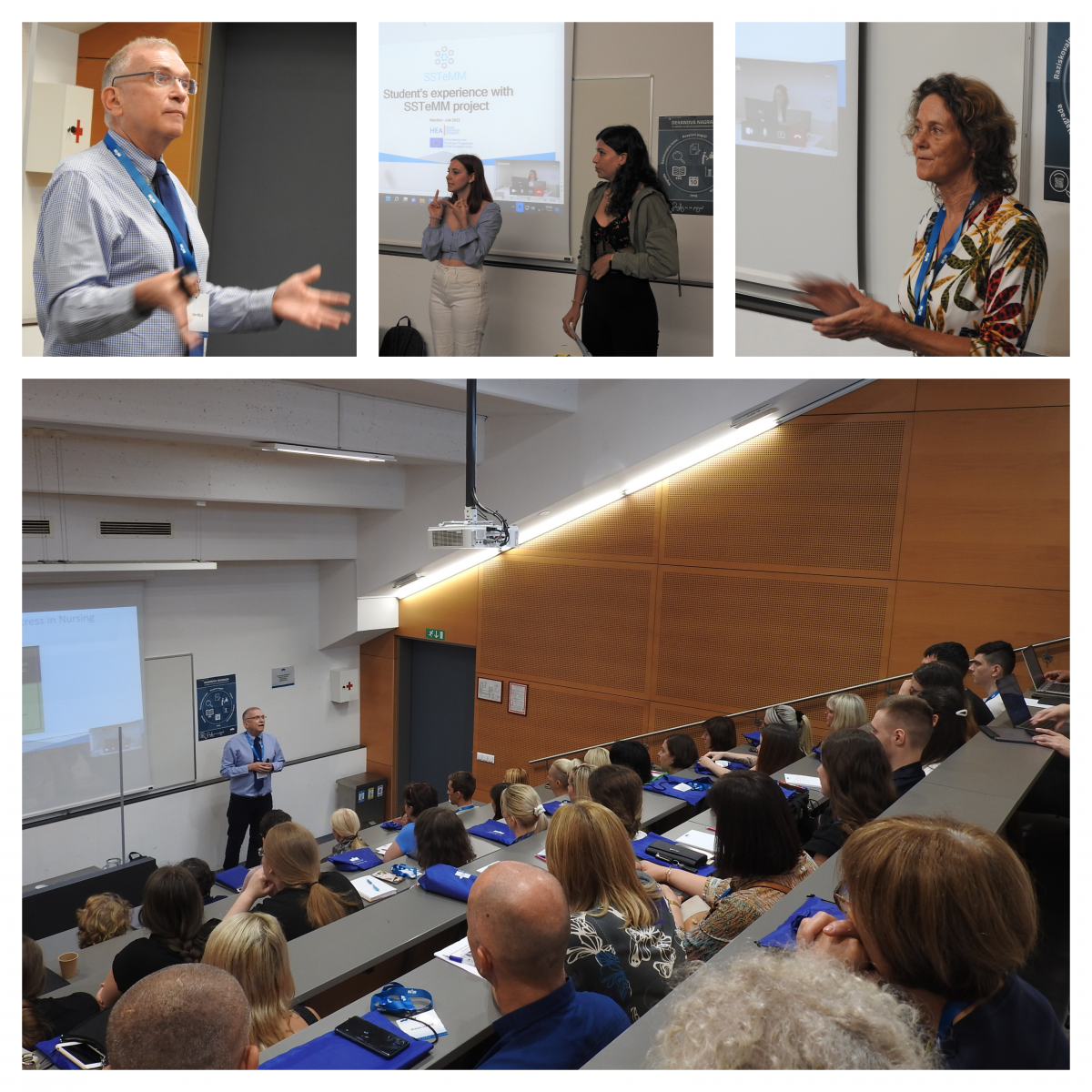The last two years have been some of the most emotionally challenging for the members of health care professions across Europe in addressing and managing care of patients during the COVID 19 pandemic. One group of health care workers who were particularly affected were student nurses whose training was disrupted and who were often called upon to work in clinical services alongside their qualified colleagues.
As a result, student nurses were subject to a range of stressors. The Student Stress Training E-Mobile Management (SSTeMM) has been developed to support student nurses to manage their stress whilst working in clinical areas. SSTeMM was launched at a conference at the Faculty of Health Sciences at the University of Maribor. Funded by Erasmus Plus through the Irish Higher Education Authority (HEA), the SSTeMM project team consists of the South East Technological University in Ireland, the Tecnocampus University in Spain, UPMC Whitfield Hospital in Ireland, IBK Management Solutions in Germany and the University of Maribor.
Through a mobile app and a support website SSTeMM aims to empower student nurses to manage their stress whilst in the clinical area to prevent it threatening their overall wellbeing. Professor John Wells, the SSTeMM project coordinator, said ‘Student nurses have some of the highest rates of stress amongst all students pursuing courses in health sciences. SSTeMM is designed with simplicity and usability in mind in order to make it easy to use and therefore a practical support for each student nurses as they experience the challenges of working in a clinical placement.’
Faculty of Health Scienced hosted the final conference of the project. Professor Majda Pajnkihar and Assistant Professor Dominika Vrbnjak, project managers at our Faculty, identified that work in health institutions is acutely stressful, even in times without the COVID-19 epidemic, due to the lack of nurses, high workloads and assuring the quality and careful treatment of patients. The COVID-19 epidemic furthermore highlighted critical lack of staff in healthcare and a lack clinical mentors for students, that are of outmost significance in healthcare education.
Stress and stress management are crucial factors of efficiency at any workplace. Consequences of stress can be seen in mistakes at work, absenteeism, burnout and leaving jobs in the nursing profession. SSTeMM project is intended to help students in nursing with the development of personal resilience to improve their work engagement, to empower them with knowledge, skills and competences to manage stress.
SSTeMM project findings are relevant for nursing education, since they help to empower students, mentors, coordinators and higher education teachers with knowledge and experience about stress, different signs of stress, strategies for managing stress and the consequences of stress on professional work, quality of life and consequences on mental health and well-being. The application and manual for maintaining mental well-being can also help raise awareness of the importance of providing students with a safe and caring educational environment. Empowered graduates will be better prepared to cope with, adapt to, and manage stress, anxiety, and negative feelings. Last but not least, it can have a positive impact on academic results, overcoming workloads and a caring attitude towards colleagues and patients.
The special value brought by the results of the project is the contribution to personal and social awareness, emphasizing and exposing mental health, mental well-being and emotional resilience in nursing students and health workers.


